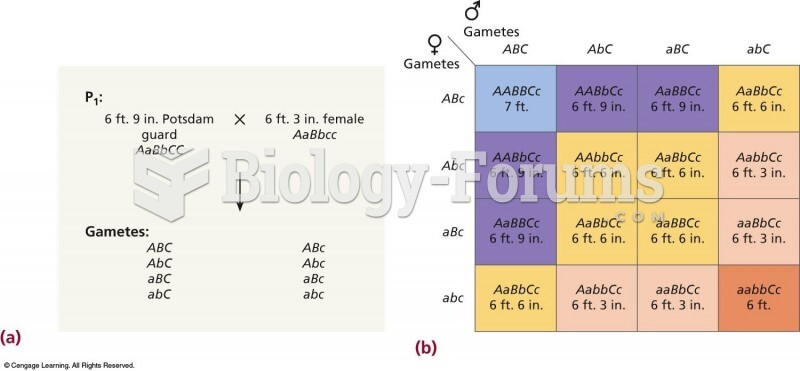|
|
|
Did you know?
According to the National Institute of Environmental Health Sciences, lung disease is the third leading killer in the United States, responsible for one in seven deaths. It is the leading cause of death among infants under the age of one year.
Did you know?
The eye muscles are the most active muscles in the whole body. The external muscles that move the eyes are the strongest muscles in the human body for the job they have to do. They are 100 times more powerful than they need to be.
Did you know?
Women are 50% to 75% more likely than men to experience an adverse drug reaction.
Did you know?
Blood is approximately twice as thick as water because of the cells and other components found in it.
Did you know?
The human body produces and destroys 15 million blood cells every second.







